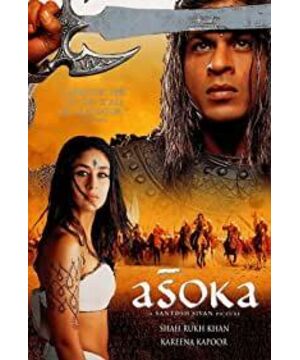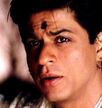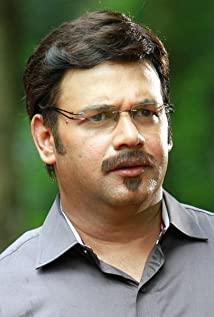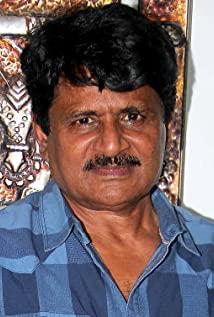The fusion of historical truth and artistic aesthetics
"Ashoka" is obviously a film based on history. Ashoka has a real person in Indian history. He is one of the most famous kings in Indian history. "Ashoka (Ashoka, transliterated Asoka, free translation of worry-free, so also known as the worry-free king, about 304 BC - 232 BC) is the third generation monarch of the Mauryan Dynasty in India, the son of King Bandou Sora, who is the son of the Indian A very great king in history. He was a Buddhist and later became the protector of Buddhism. Ashoka's popularity is unparalleled among Indian emperors, and his influence on history can also be ranked first among Indian emperors. The achievements of his life can be clearly divided into two parts. The first half of his life was the era of "Black Ashoka", which was mainly due to his struggle to secure the throne and the basic unity of India through force. In about 261 BC, he conquered Kalinga and 150,000 people were captured. Captured, 100,000 people were killed and hundreds of thousands of casualties. Then, except for the Mysore region, the whole of India was unified. It is said that King Ashoka was deeply remorseful because he witnessed a large number of slaughter scenes when he conquered the Kalinga kingdom. , so he stopped military expansion. The second half of his life was the era of "White Ashoka". He worked hard to promote Buddhism throughout the country, and finally contributed to the prosperity of this world religion. His reign became an unprecedentedly powerful era in the history of ancient India. Buddhism became the state religion. , did not persecute other sects, but also generously donated to Brahmanism and Jainism. Because of his emphasis on tolerance and non-violence, King Ashoka ruled for 41 years to the cheers of the people.”
Historical Whether Ashoka is so young and handsome in the film, and whether there is such an unforgettable love, we don't know, and it doesn't seem to be that important. Movies are an art, and art is an aestheticization of reality. There is no need to be too serious when watching a movie. As long as it can provide people with aesthetic enjoyment, I think it is a good movie. In the film, Ashoka grows from a lively teenager to an emperor, and then converts to Buddhism in the process of giving people infinite thinking.
cannibalism for the throne
As long as it is a feudal hereditary dynastic state, no matter how powerful its empire is, no matter how fast its external expansion is, the internal struggle of its empire or dynasty will often be extremely fierce and cruel. The battle for the throne between brothers, the battle for favor among princesses, the power struggle between ministers, the open and secret battles between different factions, all kinds of struggles are often intertwined, so that the interior of the dynasty is always not quiet. History also often proves that the collapse of a dynasty mostly begins from within. Ashoka's dynasty is no exception. He was born as a prince, and he was destined to experience the cruelty, killing, hatred, war, and bloodshed that a prince must experience when he grew up... As soon as he appeared in the film, he gave us the feeling of a sunshine boy , he is not obsessed with power, but his elder brother is always worried that he will snatch the throne, and he tried to kill him several times. The film also highlights their respective humanity in the comparison, and Ashoka's innocent and optimistic character is also revealed. His mother had lived in the dynasty for many years. She was well versed in the internal struggles of the dynasty and knew how dangerous her child's situation was, so she forced Ashoka to leave. King Ashoka was very stubborn at first. He was not afraid of danger and didn't want to be considered a coward, but he couldn't stand his mother's silence. For her mother's sake, he still ran away. The human characteristics of ordinary people in him were also revealed. An obedient child.
When he came back again, he had changed a lot. The loss of love and the persecution of his brother made him ignite the flame of hatred. His character was moving towards the emperor step by step. self-identification. The loss of love was a major turning point in his life. Originally, he had no desire for the throne, and he devoted all of his life to love. However, a sudden expedition given to him by his father delayed the time for him to return to his lover. When he went back, his lover had disappeared. He thought she died, and the whole meaning of his life seemed to be in vain at this moment. He was only a body, without a trace of spirit. all day long. But his brother still refused to let him go, and even intensified his efforts to put him to death, so his spirit was resurrected in hatred, and there was only hatred in his heart, and love had already been destroyed. Hatred made him lose his mind, he ascended the throne after killing his brother, the power in his hands made his hatred infinitely inflated, he has become a demon, expanding his empire without limit, no one around him can stop it , whether it is his own wife or a friend who saved his life.
The conflict between princehood and commoner love
When King Ashoka traveled as a commoner, how happy and happy he was, with love, friendship, happiness, everything was so harmonious, the happiness of ordinary people is the most real, without a trace of falsehood and utilitarian doping . However, when he fought as a prince, apart from the momentary pleasure he obtained by killing people on the battlefield, he was lonely and lonely at other times. He had no friends, only obedient soldiers; there was no earnest whisper of his lover by his side. , Only oneself silently misses. The conflict between the happy life of a commoner and the status of a prince makes King Ashoka destined to endure the pain of tearing. To get love, he must give up his status as a prince, and to keep his status as a prince, he must give up civilian-style love. , Ashoka seems to have to face the distress of choice. However, the film did not let Ashoka make his own choice, but destined Ashoka his next path: maintaining the identity of the prince and temporarily abandoning love. King Ashoka didn't voluntarily give up, he was forced. At this moment, he was being teased by fate. He didn't have the opportunity to control the direction of his own destiny. He could only obey. He was unable to make his own active choice between princehood and love. , which is the irresistibility of his destiny, which stems precisely from the conflict between his princely status and commoner love.
Although the film uses the emperor as the protagonist, it gives ordinary people a guiding meaning, that is, not to pursue wealth and power excessively. This is shown through the conflict between Ashoka's princely status and his commoner love with Kawaki. The voice-over can be fully understood that even if you have Ashoka-like status and wealth, you may not be able to achieve happiness, you Not even a plebeian love affair. After watching the film and answering this question, everyone should ask themselves: Do you choose imperial-style false luxury or commoner-style true happiness?
View more about Ashoka the Great reviews











